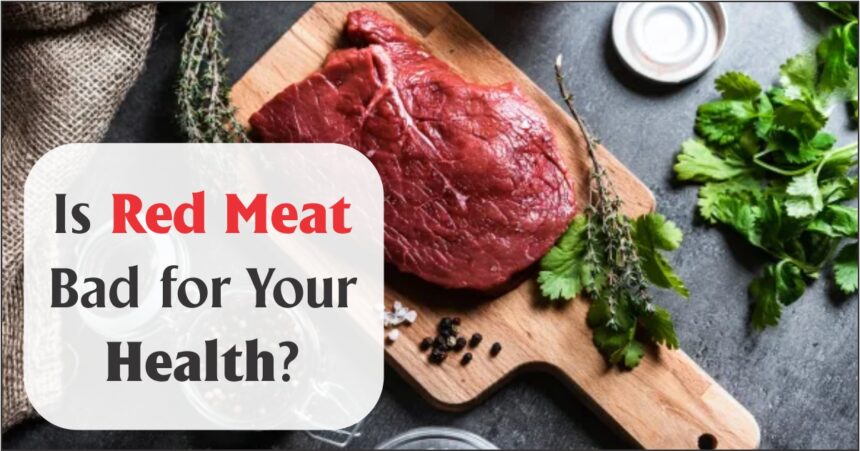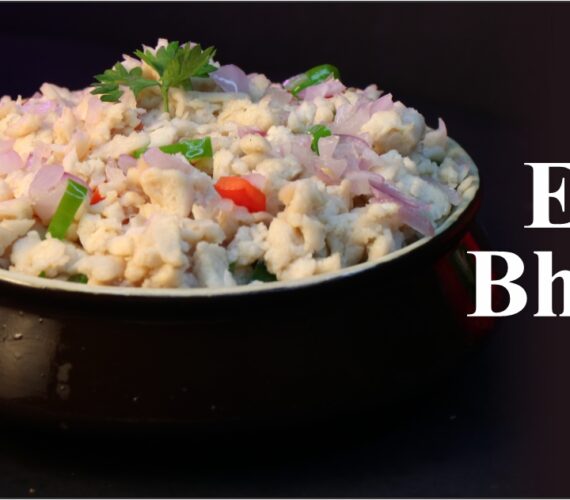Red meat has been a topic of controversy when it comes to its impact on human health. Some studies suggest that consuming red meat regularly may have negative health consequences, while others argue that it can be a part of a balanced diet. In this article, we will explore the potential health effects of red meat consumption and examine the scientific evidence behind these claims.
Introduction
Red meat refers to meat derived from mammals, such as beef, pork, lamb, and goat. It has long been a significant part of the human diet, providing essential nutrients and contributing to various cultural cuisines. However, concerns have arisen regarding its potential adverse effects on health, particularly when consumed in excess.
Nutritional Composition of Red Meat
Red meat is rich in several essential nutrients that are important for our overall well-being. It is an excellent source of high-quality protein, vitamins (such as B vitamins), minerals (such as iron and zinc), and essential amino acids. Additionally, red meat contains saturated fats and cholesterol, which are also essential for certain bodily functions but can be problematic in excess.
Potential Health Benefits of Red Meat
– Source of Essential Nutrients
Red meat is a nutrient-dense food that provides essential vitamins and minerals necessary for the proper functioning of our bodies. These nutrients play crucial roles in energy production, immune function, and maintaining healthy red blood cells.
– High-Quality Protein
Protein is an essential macronutrient needed for growth, repair, and maintenance of body tissues. Red meat is a complete protein source, meaning it contains all the essential amino acids required by the body. Including red meat in the diet can help meet protein needs, especially for individuals following diets with limited protein sources.
– Iron and Vitamin B12
Iron and vitamin B12, both abundant in red meat, are vital for the production of red blood cells and the maintenance of a healthy nervous system. These nutrients are particularly important for pregnant women, growing children, and individuals at risk of deficiency, such as vegetarians or vegans.
Potential Health Risks of Red Meat
– Saturated Fat and Cholesterol
One of the main concerns associated with red meat consumption is its high content of saturated fat and cholesterol. Diets rich in saturated fat have been linked to an increased risk of heart disease and other chronic conditions. However, it’s important to note that not all saturated fats are created equal, and the overall dietary context plays a significant role in determining health outcomes.
– Association with Chronic Diseases
Several observational studies have suggested a potential association between high red meat intake and increased risk of chronic diseases, such as cardiovascular disease and type 2 diabetes. However, these studies often rely on self-reported dietary data, which can be subject to biases and confounding factors.
– Colorectal Cancer
There is some evidence suggesting that high consumption of processed and unprocessed red meat may increase the risk of colorectal cancer. The formation of certain compounds during the cooking process, such as heterocyclic amines and polycyclic aromatic hydrocarbons, has been linked to the development of cancer. However, the absolute risk increase is relatively small, and other lifestyle factors, such as physical activity and overall dietary patterns, also play a significant role in colorectal cancer risk.
Red Meat Alternatives
For individuals looking to reduce or avoid red meat consumption altogether, there are several alternatives to consider. Plant-based protein sources like legumes (beans, lentils, chickpeas), tofu, tempeh, and seitan can provide adequate protein and nutrients. Additionally, poultry, fish, and seafood can be included as leaner alternatives to red meat. Now a days, there are many foods company who manufacture red meat alternatives food products. In my opinion Vezlay Foods Pvt. Ltd. Is one of the best food manufacture company who manufacture Veg Meat, Veg Chicken, Shami Kabab, Seekh Kabab, Plant based Seekh kebab and so many products. There products contains high protein, zero cholesterol and plant based protein. One of the best things about their products that’s most of products give taste of non-veg but they all pure vegetarian and vegan products.
Red meat alternatives are food options that can replace traditional red meats such as beef, pork, and lamb. These alternatives offer a range of benefits, including reduced saturated fat content, lower cholesterol levels, and a decreased risk of certain diseases when consumed in moderation.
Plant-Based Red Meat Alternatives
Tempeh
Tempeh, a fermented soy product, is a popular choice for individuals seeking red meat alternatives. It has a firm texture and a slightly nutty flavor. Tempeh is rich in protein, fiber, and various essential nutrients such as iron and calcium. It can be marinated, grilled, or sautéed to enhance its taste and used as a substitute for meat in various dishes.
Seitan
Seitan, also known as wheat meat or wheat gluten, is made from gluten protein derived from wheat. It has a chewy and meat-like texture that makes it a suitable substitute for red meat in recipes. Seitan is high in protein and low in fat, making it an excellent choice for those looking to reduce their meat consumption while maintaining a good protein intake.
Tofu
Tofu, made from soy milk, is a versatile and widely available red meat alternative. It has a mild taste and a soft texture that can be easily incorporated into various dishes. Tofu is an excellent source of protein, iron, and calcium. It can be grilled, stir-fried, or used in stews and soups as a substitute for meat.
Lentils
Lentils are legumes that come in various colors, including green, red, and black. They are a nutritious option for individuals seeking red meat alternatives as they are rich in protein, fiber, and essential minerals. Lentils can be cooked and used in salads, stews, and curries, providing a hearty and satisfying meat-free option.
Protein-Rich Red Meat Alternatives
Quinoa
Quinoa is a gluten-free grain that contains all nine essential amino acids, making it a complete protein source. It has a slightly nutty flavor and a light, fluffy texture when cooked. Quinoa can be used as a base for salads, added to soups, or enjoyed as a side dish to accompany other main courses.
Beans
Beans, such as black beans, kidney beans, and chickpeas, are excellent sources of protein and fiber. They can be used in various recipes to replace red meat, including vegetarian chili, bean burgers, and Mexican-inspired dishes. Beans are not only nutritious but also budget-friendly, making them a popular choice for individuals looking for red meat alternatives.
Nuts and Seeds
Nuts and seeds, such as almonds, walnuts, chia seeds, and flaxseeds, are packed with protein, healthy fats, and essential nutrients. They can be used as toppings in salads, added to smoothies, or incorporated into
Conclusion
The impact of red meat on health is a complex and nuanced topic. While red meat offers valuable nutrients and can be part of a healthy diet, excessive consumption, particularly of processed and high-fat varieties, may pose potential health risks. It is crucial to approach red meat consumption with moderation, balance, and mindful choices in cooking methods and portion sizes. Incorporating a variety of protein sources, both plant-based and lean animal-based, can provide the necessary nutrients while reducing the potential risks associated with high red meat intake.








